
Study confirms deadly bird flu is being transmitted between cows
American researchers warn that ‘efficient and sustained mammal-to-mammal transmission is unprecedented’ and is occurring among asymptomatic cattle

American researchers warn that ‘efficient and sustained mammal-to-mammal transmission is unprecedented’ and is occurring among asymptomatic cattle

The German scientist, in the running to win the Nobel Prize, believes that his experimental drug can rejuvenate the brain and reverse a multitude of diseases

The strategy — the injection of a simple antibody — has already begun to be tested in humans in an attempt to cure age-related illnesses

The ‘chromosome fossils’ from a female who died 52,000 years ago in Siberia have opened a window to a world still unknown to science

In the middle of the Cold War, a French expedition was able to access the Soviet Vostok base in Antarctica, where the temperature falls to -90ºC, to confirm the link between CO2 and global warming
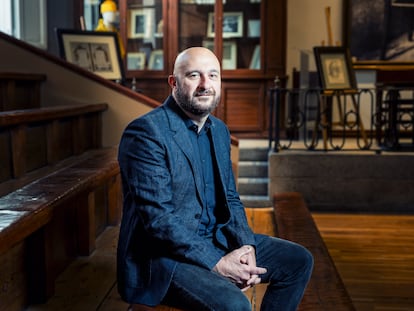
The Palestinian scientist has managed to create living structures similar to two-week-old human embryos in his laboratory in Israel

The scientist — ignored in previous award ceremonies — has won the Princess of Asturias Award for Technical and Scientific Research, for her role in the revolution of medications being used to treat obesity and diabetes

For years, Professor Juan Manuel Corchado demanded that his collaborators include up to 20 references to his own work in their papers. On Friday he took office as the new rector of Salamanca University in Spain

The biologist Alfonso Martínez Arias defends that genes do not define the uniqueness of a person, citing the example of Karen Keegan, who has two genomes
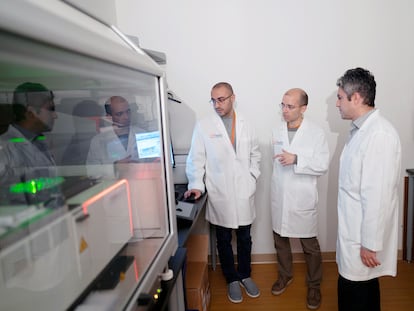
Spanish biochemist Héctor Méndez and his colleagues from the University of Florida have achieved ‘promising’ results in their initial human trial
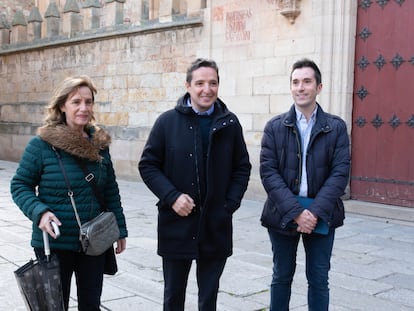
Juan Manuel Corchado is the only candidate for the top position at the prestigious University of Salamanca in Spain despite artificially boosting his metrics to look like a world eminence
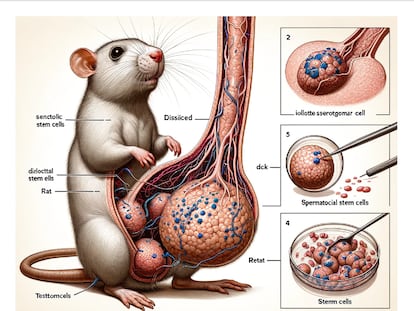
A London librarian has analyzed millions of articles in search of uncommon terms abused by artificial intelligence programs
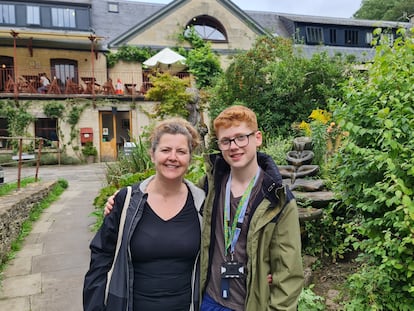
The team led by Sergiu Pasca, from Stanford University, wants to test this promising strategy in children with Timothy Syndrome, which is associated with autism and epilepsy
The University of Oxford researcher is testing a revolutionary injection to prevent the appearance of lung cancer, the most common and deadly form of the disease
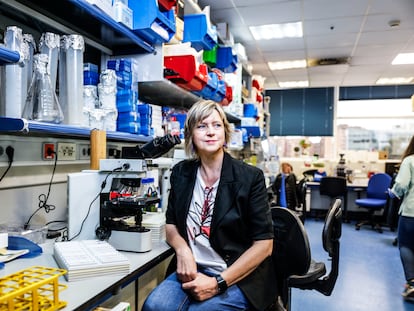
Public coffers receive €1 million a year thanks to Giovanna Roncador’s work with molecules to study cancer at one of the best research institutions in the world, CNIO. The case illustrates Spanish scientists’ struggles against entrenched bureaucracy and lack of support for entrepreneurship
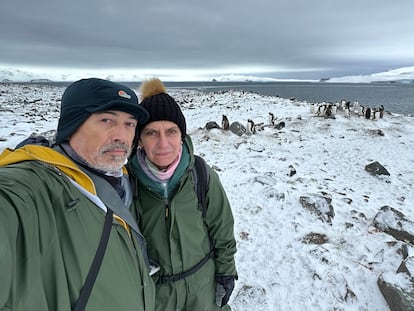
An international expedition finds dozens of carcasses of skua, a scavenging bird, and shows that the disease is spreading across the planet’s southernmost continent. Hundreds of dead penguins were also found, although the presence of the virus in the bodies has not been confirmed
Geologist Juan Manuel García Ruiz has received more than $10 million to investigate the role of silica in the emergence of living beings
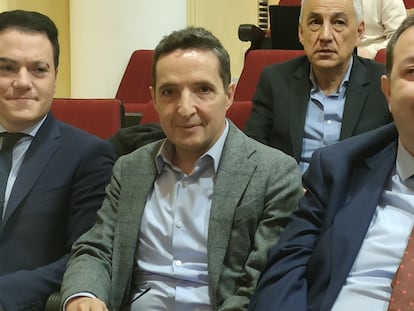
Juan Manuel Corchado, an expert in artificial intelligence at the University of Salamanca in Spain, falsely inflated his resume to boost his Google Scholar ranking
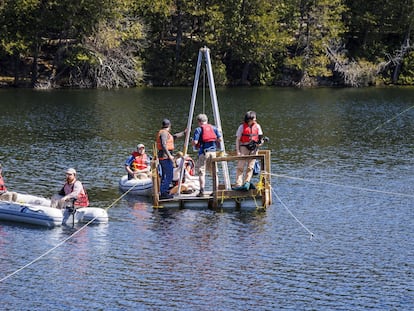
A panel of experts voted down a proposal to officially label the human age as a newly created era to reflect our impact on the planet. The president of the committee denounces ‘serious violations’ of the rules
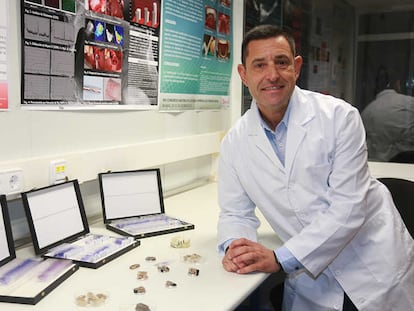
The former professor at the Catholic University of Murcia asserts that he has never cheated in his life, but a dozen journals have already withdrawn 34 of his studies due to irregularities
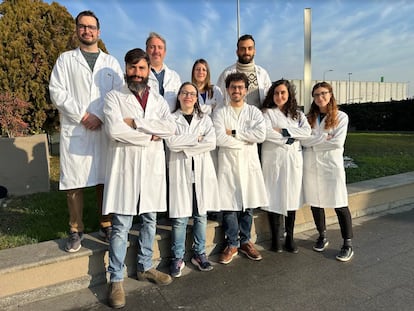
A breakthrough experimental treatment has succeeded in permanently deactivating a bad cholesterol gene in mice, without modifying their DNA
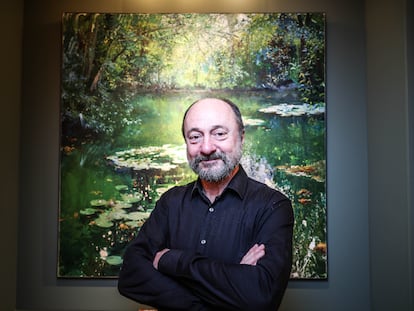
The researcher has created mice with 100,000 human neurons embedded in their brain to accelerate the search for drugs against dementia
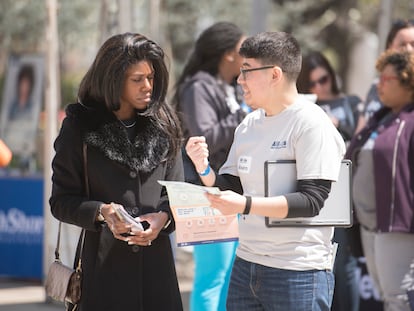
A macro-study, involving thousands of poor volunteers and other traditionally overlooked groups, reveals 275 million previously unknown genetic variants

An experiment with 1,000 people from the same city that began over a decade ago reveals the unknown persistent effects of tobacco on our immune responses
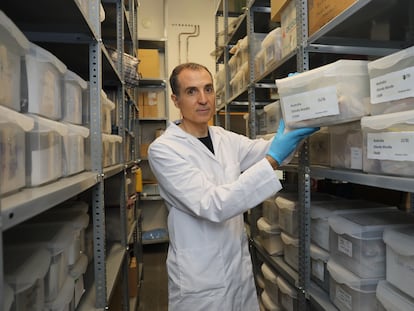
An expert on desertification who is highly critical of the Spanish scientific system, the ecologist recently won a $2.7 million European grant he’ll now have to delay or turn down entirely
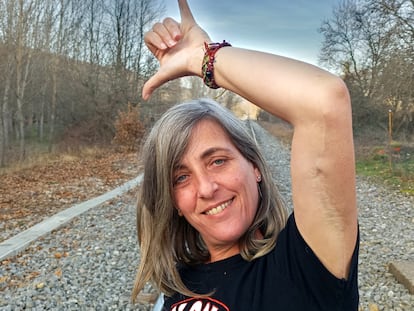
Spanish scientist Patricia Casas shares her four-year battle with the Buruli ulcer. A new study suggests that mosquitoes transmit this neglected disease
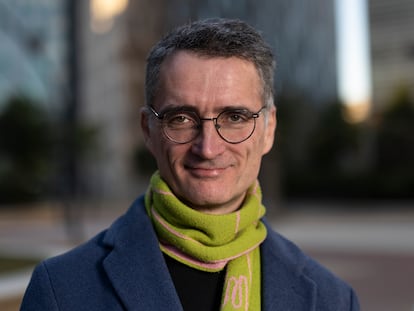
Many researchers hold that thinking is separate from speech, but this expert rejects that notion. Now, his team is going to delve into the brains of people with psychosis in an $11 million project